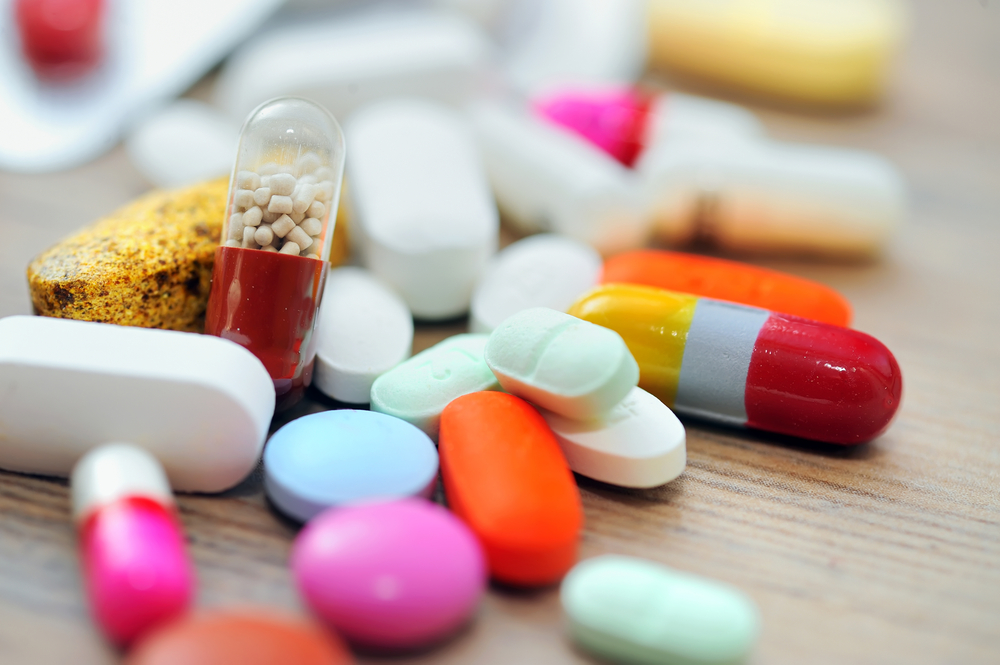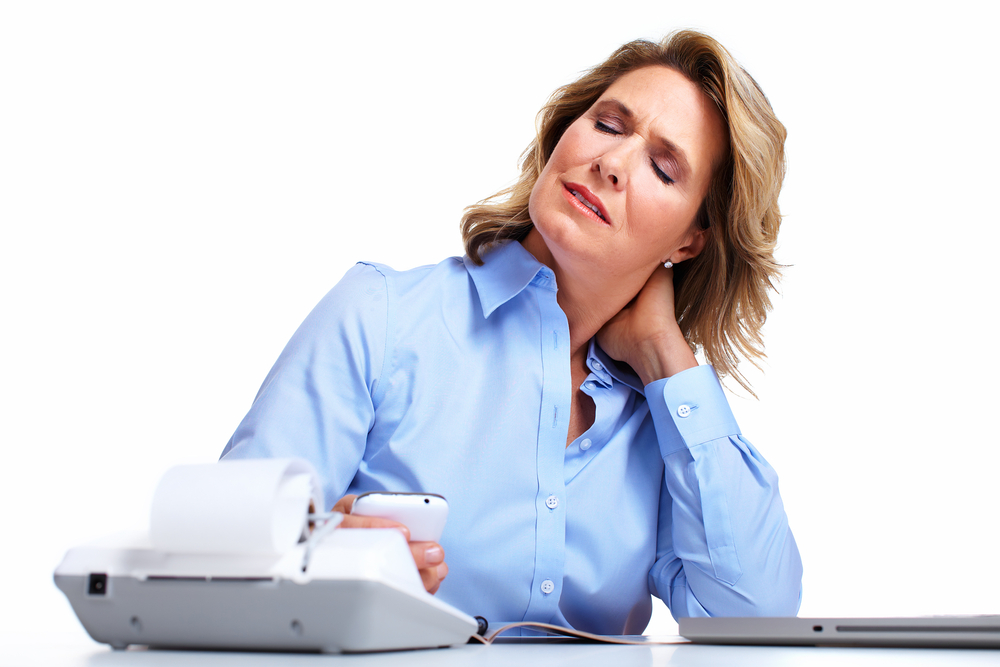If you ever watch television, read magazines, or leave your house, there’s no doubt you’ve seen advertisements for prescription drugs. They are now sort of…everywhere. You have to practically stare at them in the subway in New York, and they are really all over TV. But, Do You Really Need Medication?
While the drugs promise miracle cures for all that ails you, if you pay attention to the fast talking voice at the end of a television commercial, you’ll hear a long list of side effects (usually sped up to nearly cartoon speed). Some of them are pretty horrifying. Recently, Mount Sinai School of Medicine evaluated pharmaceutical advertisements and found that only 18 percent of them complied with FDA guidelines. Likewise, more than a (scary) 50 percent failed to outline significant risks of the drugs they advertised.
Direct to consumer advertising of pharmaceuticals was allowed by the FDA starting in 1997. Today, the budget for prescription drug ads exceeds $57 billion per year. Most ads suggest patients “ask your doctor” about whatever drug is being hawked. Many patients do, and since 1999 the incidence of people taking one or more prescription drugs has risen from less than 43 percent of the population to more than 48 percent. It begs the question, are Americans getting sicker, or is direct to consumer advertising of pharmaceuticals causing an increase in the number of Americans unnecessarily taking prescription medications? (Or both?)

I would never suggest that all drugs are bad. In some cases, pharmaceuticals can save lives or improve the health of the patient. It’s a huge benefit to the modern world to have life-saving drugs at our fingertips. That’s why I recommend working with a doctor you can trust and advocating for yourself. But is every prescription necessary?
According to the Centers for Disease Control, use of pharmaceuticals in the United States has risen sharply in the past decade. At least 48.3 percent of Americans have used one or more drugs in the past month, while a full 10 percent have used five or more! The most commonly used pharmaceuticals, by demographic are:
- Children (0-11): Bronchodilators
- Adolescents (12-19): Central nervous system stimulants
- Adults (20-59): Antidepressants
- Adults (60 and older): Cholesterol medication
Let’s look at one type of drug as an example: statins. Statins are cholesterol-lowering medications. As I mentioned previously, the CDC reports this is the most commonly taken prescription medication in adults over the age of 60. While statins are very effective at lowering cholesterol, in many cases so is adapting lifestyle changes such as eating a plant-based diet, losing weight, quitting smoking, managing stress, and getting regular exercise.
Statins also have a whole host of side effects ranging from mild to serious. According to the Mayo Clinic, side effects of statin drugs include:
- Aches and pains in the muscles and joints
- Digestive problems (nausea, diarrhea, constipation)
- Liver damage
- Increased risk of type 2 diabetes
- Kidney damage
- Muscle breakdown
- Neurological problems including memory loss and confusion
- Dangerous interactions with other medications
While the risk of developing coronary artery disease is nothing to minimize, the risks of side effects of the drugs to treat high cholesterol aren’t exactly minor either. We could do a similar breakdown for other drugs, like anti-depressants.
 Another concern with prescription medications is this: when side effects arise resultant of taking medication, how are they treated? Do you treat with a new medication to manage the symptoms? Unfortunately, this often happens in Western medicine – treating each new symptom with another medication. The result is a toxic sludge of medications – each with their own side effects – building up in your system. While each medication may help you manage specific symptoms, they also have their own side effects and risks.
Another concern with prescription medications is this: when side effects arise resultant of taking medication, how are they treated? Do you treat with a new medication to manage the symptoms? Unfortunately, this often happens in Western medicine – treating each new symptom with another medication. The result is a toxic sludge of medications – each with their own side effects – building up in your system. While each medication may help you manage specific symptoms, they also have their own side effects and risks.
It’s important to note I’m not telling you to stop taking any medications you are on. That is a decision you need to make in conjunction with a highly qualified medical professional. I would suggest, however, that you educate yourself about the medications you are prescribed and take only those that are medically necessary. Some tips for managing medications and health:
- Minimize or eliminate over-the-counter medications, especially if you’re taking prescription meds.
- Work with a primary health care provider with whom you have established trust.
- When a doctor prescribes a medication, ask questions about the benefits, risks, and side effects of the drug. You may also want to ask if the medication has been studied to treat your condition or if the doctor is prescribing it as an “off label” use. According to the Mayo Clinic, about 20 percent of medications prescribed are for off label uses.
- Ask your doctor about non-drug treatments to manage your condition.
- Read the package insert and pharmacist’s instructions for every prescription.
- If you do decide to take the medication, ask about drug interactions with non-prescription medications, vitamins, herbs, and other drugs.
Symptoms Tell You Something Is Wrong
When you experience a “symptom,” your body is telling you something isn’t right. Immediately rushing to treat that symptom with a medication may help you feel better in the short term; however, if you don’t treat or eliminate the underlying cause of your symptoms your health will not improve.
The ROOT cause of many of the symptoms we experience is nutritional. Poor nutrition – eating foods and chemicals the human body was not meant to process – is at the root of many diseases. Likewise, deficiencies in vitamins and minerals, toxicity from food additives and pesticides, and other food related illnesses can cause everything from minor aches and pains to life-threatening illness. Beauty Detox Foods is designed to help you gain control of your health by providing your body with the wholesome, nutritious foods it requires for optimal health.

The best way to avoid taking medication is to prevent symptoms and illness from arising in the first place. Here are my tips for optimizing your health:
- Eat a mostly plant-based organic diet consisting of whole foods such as fruits, vegetables, raw nuts and seeds (especially Omega-3 rich chia seeds), and whole non-gluten grains.
- Minimize foods the human body doesn’t process well, such as dairy, peanuts, processed foods, sugar, chemicals and excessive amounts of animal protein.
- Skip artificial and/or sugary beverages such as soda and processed fruit juice.
- Drink plenty of pure water.
- Manage your stress via meditation or yoga.
- Find active activities you enjoy and pursue them regularly.
- Get plenty of sleep.
On a related note, people also often find themselves asking which what vitamins should I take and do I really need it?


Hello Kimberly
What do you think of Mila seeds vs Chia seeds ?
Do you think the supposedly higher quality of Mila justifies its high cost ?
Thank you for letting us know.
Big Ag poisons us with the Standard American Diet, then turns us over to Big Pharma when the chronic diseases start to show up who eventually turns us over to Big Medical to hospitalize us and cut out or burn out the results of the poisons that we willingly ate for years.
I find it ironic that in so many of the drug commercials, the people taking the drugs for some chronic disease are happily cutting up fruits and vegetables in their kitchen. This is an insidious sub text to the subliminal brainwashing – that despite great diets you need the drugs.
Readers of Kimberly’s books know this is nonsense, but Standard American Diet Americans do not.
People follow Kimberly Snyder’s program for many different reasons.
I myself really enjoy the fact that I do not fall for Big Ag/Big Pharma/Big Medical BS, and because of my plant based mostly raw GGS diet I will never be their customer
If man can do it, nature can do it better!!!!!
Hi Kim, I work in the pharmaceutical field and I completely agree with you on this topic. I see patients come in with prescriptions for drugs that treat their illnesses which I think is a quick solution for them to get out of the doctor’s office. I want to become a registered dietitian and I want doctors to prescribe a session with a dietitian instead of prescribing a drug…nutrition is the best type of (preventive) medicine an I want to help people get well through making lifestyle changes and not a quick fix. I wish there was some way to incorporate more diet changes classes into our health care because that would lower insurance costs by so much in the long run. Dietitians could also help prevent patients’s nutritional losses when they do take certain types of medications which could prevent certain side effects. My point being that pharmaceuticals are overrated!
Hmmm… $57 billion seems a bit large.
I really enjoy learning and educating myself on how to be healthier. I have a lack of energy and just reading your book and what you post on your blog gives me that thrive to take charge of my life and to be aware of what I am putting into my body. Thank you!
I’ve been a vegetarian for four years now but still need medication for cholesterol and high blood pressure. I wanted to prove to the doctor that I didn’t need to take anything so I stopped taking the medication for 6 weeks. I did a cleanse during that time for one week. I also get all my vegetarian recipes on line (and some times vegan). Well, my cholesterol was, total 270. So now I bought your book and hope it will help. Wish me luck.
I am 62 and I do not take any drugs. I purchased your first and second book they help keep me healthy and free of drugs.
Hi Kimberly,
I really like the beauty detox lifestyle and I’m really seeing much approvement in my daily life.
I’m trying to get pregnant and I was wondering If I can now and during my pregnancy keep continuing to
take my magnesium oxide supplement?
Warm regards
Katrien (Belgium)
Hey Kim!
I’m curious what your opinion is on omega 3 supplements while following the BDS lifestyle? I take probiotics, vitamin C, vitamin D, and chlorophyll daily to prevent aging, but is omega 3 necessary? Thank you!
Most medications have side effects, some worst than others. If we could manage our illness with natural herbs, a change in our diet or alternative remedies we will be better off. Like Hippocrates, considered the father of medicine, once said, “Let your medicine be your food, let your food be your medicine.”
Kimberly, this is a very big concern for me. In 2008 I found out from a neurologist that I had a tear in my spinal cord that required me to have surgery to have a fusion of 2 of my vertebrae & a plate with screws put in placeto protect the area from further damage if I were to fall or have an accident it.could leave me paralyzed if I did not have this done. Since then I have been on pain medication as well as before they found way was causing my pain. I don’t like having to take medication everyday but I also know that this is the only thing that keeps me from living with severe pain everyday. Although I have noticed an improvement in controlling my pain since I have begun eating the BDS lifestyle I do live with a certain amount of pain on a daily basis, some days are better than others but the pain is always there. I don’t know what my alternative is as I want to be able to function everyday. I try to cut back on my usual dose if my pain is not particularly bad on a given day but I still have to take it everyday. If there is any other alternative that you could suggest I would greatly appreciate it. I know that you are not a medical doctor & cannot advise me as one but I do trust your advise more than I could ever tell you. I hate knowing that I am putting all that toxicity into my body when I have been working so hard on eating properly to avoid it. I just don’t know what else I can do.
Thank you, Cindy
P.S. I have now lost 60 pounds since living the BD lifestyle & love all the new recipes from the BDF book. It is AMAZING
Wow, Antidepressants as the number one medication in ages 20-59. Wow.
I totally agree with what you’re saying! I always feel sort of bad whenever I take advil for a migraine (which have become much less frequent ever since I started incorporating more veggies and less sugar into my diet), and I never take anything for the common cold except tea (lemon ginger or mint).
Thanks for such an indepth and helpful article. I totally agree that the number of people taking medication is quite scary. Like you say, a balanced diet and using a stress-lowering technique does wonders with our health, I guess because the cells can then operate in a ‘growth’ rather than a ‘defensive’ state?
I totally agree with you, however, doing all of this does not always help. I have never been overweight, I am vegetarian and extremely careful of what I eat. I try to exercise regularly. I basically follow the plan that you follow. I am on three different medicines to manage my high blood pressure. I was a person who would not even take an aspirin and also figured I would get my vitamins from all the wonderful foods I eat. I hate taking any pills, but am very aware that if I didn’t, I would probably be heading for a stroke or kidney disease.
I developed a urinary tract infection after stopping eating sweetened dried cranberries, as a result of trying to follow your recommendations for diet. Are there any foods I can eat, other than drinking lots of water, that can help prevent urinary tract infections?
I’m not that much of a internet reader to be honest but your sites really nice,
keep it up! I’ll go ahead and bookmark your site to come back in the future. All the best
Yes! Finally someone writes about anti agng cream.
This is so true,
I think we should do more research before putting pills in our bodies!
Acupuncture and herbs have always worked for me and when I did take pantoprazole
Antibiotics for my heartburn I developed an ear infection. So now I’m curing
My heartburn and ear infection with herbs and acupuncture and feel amazing!
I’m not saying not to take meds if you need them but I believe you should do your homework first!
I just guess that you see the life very close. All this health problem can makes a anyone in a depression and which direct affected to our professional life. Thanks for the solution to shut it out
Our body needs cholesterol and if we don’t consume it our liver makes it. And for the record, meat and animal fat does not cause high cholesterol. I had high cholesterol at a very young age (teens) and was told I would always have high cholesterol because of genes. At the age of 25 I met a nutritional consultant and I gave up all processed foods including all grains and dairy. I eat a lot of meat and animal fat, which comes from free-range grass-fed animals. I also eat a tonne of leafy greens and vegetables. Within ONE week of changing my diet my cholesterol was back to normal. I do not agree that in order to lower cholesterol that you have to become a vegetarian or vegan. Many of the things that vegetarians/vegans consume are toxic to our bodies. For example, soy.